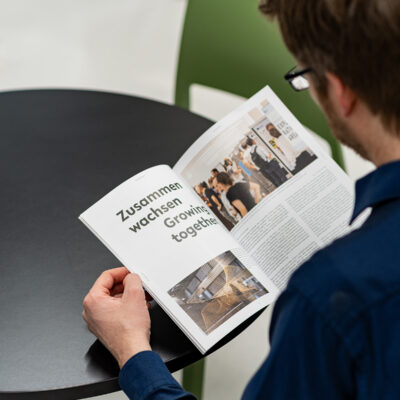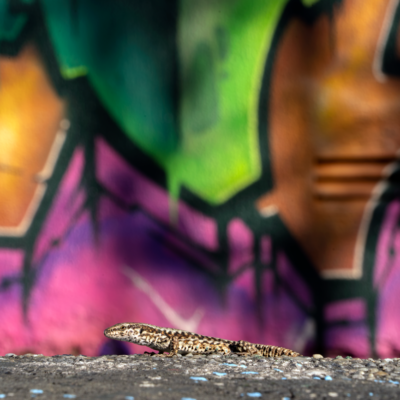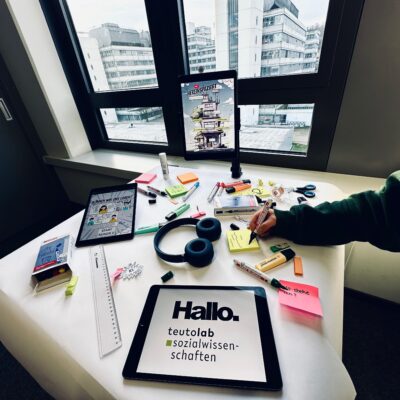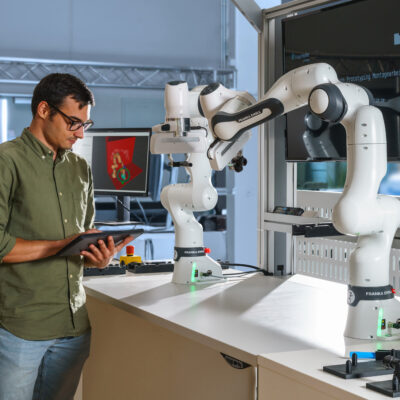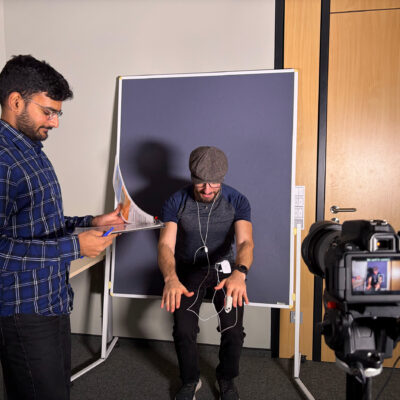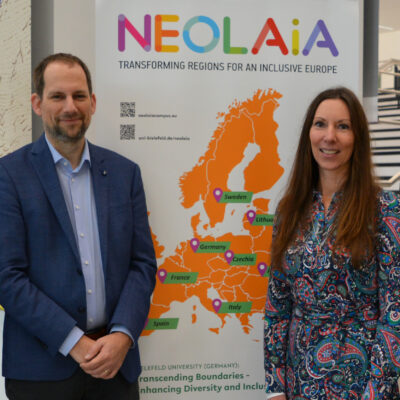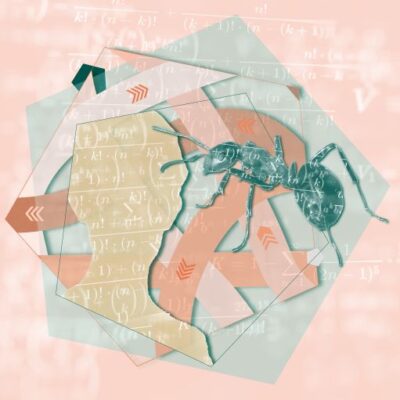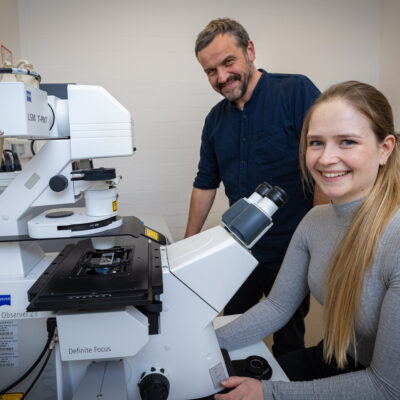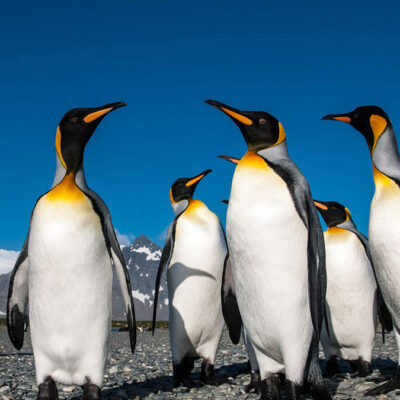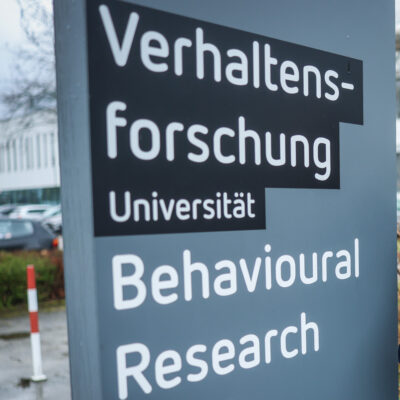© Mike-Dennis Müller/Bielefeld University
Rare Does Not Mean Insignificant
On Rare Disease Day, February 28, the spotlight turns to conditions that are individually rare but together affect many families. At Bielefeld University, research into lysosomal storage disorders is opening up new perspectives — also for Parkinson’s and dementia.
Read more »© piyaset/stock.adobe.com
From climate risks to football fever
Systematically quantifying and managing uncertainty is the core of the QUAMU Focus Area.
Read more »© Amilciar/stock.adobe.com
Overlooked resilience in Venezuelan society
What does science say about Venezuela’s crisis? In the latest update of this ongoing article collection, two researchers point out that international debates focus too narrowly on political conflict.
Read more »© Wissenswerkstadt Bielefeld/Sarah Jonek
Stadium fever measured—why live football raises the pulse
Fans of DSC Arminia Bielefeld experience matchday excitement far more intensely in the stadium than in front of the television when watching football (soccer). A study from Bielefeld University demonstrates clear differences in heart rate and stress levels during the 2025 cup final of the German Football Association (DFB).
Read more »© deteringdesign
New BI.research: Growing together
13 Focus Areas are bringing together academics from different disciplines to advance outstanding topics. They demonstrate how the university is growing together. The new BI.research magazine presents them all.
Read more »© Sergio Luna
How cities are changing social behaviour in urban animals
Cities profoundly shape how animals interact with one another. A new comprehensive review by researchers at Bielefeld University shows that urbanisation alters animal social behaviour – from mate choice to group living.
Read more »© Robert/stock.adobe.com
WhatsApp data show: We often deceive ourselves
How active are we really in chats and how accurate is our self-perception? A new study using anonymized WhatsApp metadata shows how data-driven feedback can improve our understanding of communication and digital well-being.
Read more »© Tim Schubert
Live Ideas: New teutolab for Social Sciences launches
Bielefeld University is establishing a new extracurricular learning space with the teutolab for social sciences. Combining politics, economics and sociology, it invites young people to critically explore everyday life, social conflicts and future challenges.
Read more »© indigo(c)2023
Humans and Machines as a Team: New “Humation” Alliance
How can humans and machines be brought together in ways that benefit both? This question drives the new competence network Humation – Human-Centred Automation, founded jointly by Bielefeld University and the Fraunhofer IOSB-INA in Lemgo.
Read more »© Drimalla
Contactless Pulse Measurement Falters at High Heart Rates
Researchers at Bielefeld University have analyzed how reliably AI methods can detect pulse rates from simple video recordings.
Read more »© Norma Langohr/ Bielefeld University
Europe meets in Bielefeld
The NEOLAiA Focus Academy celebrated its premiere at Bielefeld University, bringing together students from across Europe to explore digital transformation and entrepreneurship.
Read more »© ZiF
Robust Decisions in Natural and Artificial Intelligence
People, animals and AI make decisions every day under conditions of uncertainty. A new international research group at ZiF Bielefeld is investigating robust decision-making strategies for this purpose. For the first time in a workshop from 8 to 19 December.
Read more »© Elena Berz
Make foams recyclable via break points
Chemists at Bielefeld University receive funding to apply research on recyclable plastics.
Read more »© Neuenkamp
What Our Meadows Reveal About the Future
Meadows are quietly losing their diversity – often before we even notice. A research team led by Prof. Dr Lena Neuenkamp has now demonstrated in Nature Ecology & Evolution that spatial data can predict changes in species diversity over time with astonishing accuracy.
Read more »© Vreni Jäckle
Thinking Takes Energy
A new study shows how our brain metabolism sets the limits of thinking. Researchers explain why cognitive models remain incomplete without considering biological resources.
Read more »© Bielefeld University/ Mike-Dennis Müller
Cells Pull the Emergency Brake When Oxygen Runs Low
When cells face a lack of oxygen, they switch to energy-saving mode:
A team at Bielefeld University shows how they deliberately slow down their secretory transport pathway to do so.
© Oliver Krüger
Focusing on the individual: how diversity advances research
What makes individuals unique—and why is that important? The new focus area InChangE delivers insights.
Read more »© privat
Our Solar System Is Moving Faster Than Expected
Our solar system is racing through space faster than current models predict – as shown by a new study from Bielefeld University. The surprising findings challenge fundamental assumptions of cosmology.
Read more »© ZEN SUMR
Public Opinion Divided on Military Service
Conflict Monitor: Younger People Favor Voluntarism, Older Generations Call for Compulsory Service.
Read more »© Alex Photo/stock.adobe.com
Polio Vaccination Remains Essential
A new study shows: The polio vaccine remains essential. Prof. Dr. Oliver Razum emphasizes: Eradication is unlikely, vaccination protection remains indispensable.
Read more »© Bielefeld University/ Patrick Pollmeier
New paths in mathematics
The ESyMath focus area aims to bring together different areas of mathematics and related sciences in order to exploit and further develop synergies.
Read more »© Universität Bielefeld /Sarah Jonek
Research Team Explores Inclusion at Conferences
A research team from Bielefeld University investigates how inclusive academic conferences really are and offers concrete recommendations to promote participation and diversity.
Read more »© Marc Gilles
City lizards turn out to be surprisingly social
Narrow walls, few hideouts: in cities, wall lizards build more social ties and form stable bonds, unlike their more solitary counterparts in natural habitats.
Read more »© Bielefeld Univerity
How humans and AI work as a team
How can cooperation succeed between humans and AI? The FAITH focus area at Bielefeld University is researching the hybrid teamwork of tomorrow.
Read more »



